#understand that some people exist........ who are not interested in sex
Text
people will write the most aphobic or amatonormative essays on creativity or media in general and other folks will link it around like it's the most Beautiful and True thing that has Ever been Written and it's just something like
"more children's media needs to show characters having sex"
or "art is only good if it involves fetishes and is written by intensely sexual people because liking sex is normal and not being interested in sex is not and makes your writing Extremely Boring and Bad"
or "media that shows muscular or thin people is so sad because it will make other people want to be muscular or thin and then that will lower their libido and they will not be able to enjoy sex which is more important than health"
like are people... actually reading what these essays are saying or
#negative nonsense#sorry some weirdo linked to one of these essays in response to a post a friend of mine made#and it never ceases to amaze me how people think the world must revolve around sex#to the point where only Good Art/Media/Writing/Whatever involves sex#and if it does not involve sex it is Not Good#like my bros my dudes please goodness gracious sakes alive#understand that some people exist........ who are not interested in sex#and they're not unhealthy or anything they just!!! are not interested!!!#and they don't want to include it in their works!!!#and that works don't have to include sex or fetishes to be good!!!#like I get that you're combating sex negativity but don't like stomp on sex repulsed or asexual people in doing so???#(I am asexual for the record please do not come at me for stereotyping ace people as not liking sex)#(I am ace and sex repulsed please let me exist and stop trying to tell me I am a bad writer/artist for who I am)
116 notes
·
View notes
Text
The Importance of Studying Queerness in Context.
When studying queer history, one always has to keep in mind two seemingly contradictory things: firstly, that queerness and queer people have always existed, but at the same time, that queerness and queer identities have not always existed the way they exist today.
Modern queer terms and identities did not exist to queer people in the past. They would not have thought of themselves as "gay" or "trans" or even "queer." While these modern terms may seem to fit certain historic individuals, these individuals would not have thought of themselves as such, and it would not be a part of their lived experience. To apply the modern identities of queerness to history is to erase the lives and experiences of queer people in history, and care must always be taken to understand queer history within the context of its time.
When looking at queer history online, there is a *lot* of misinformation and misidentification out there simply because people are eager to apply modern queerness to history, often in places where it doesn't belong.
A lot of old photos get misidentified as gay because they show two people of the same sex showing some level of physical affection towards each other. Okay, I'll admit that the open-mouth kissing photobooth pictures are probably actually gay, but an old picture of two men or two women holding hands or with their arms around each other, or even kissing on the cheek, were common shows of platonic affection.




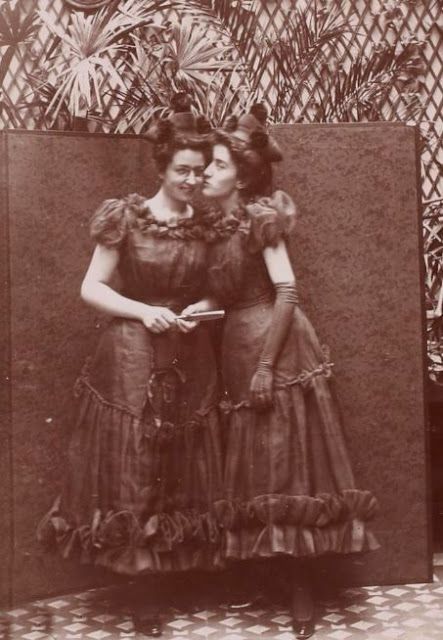

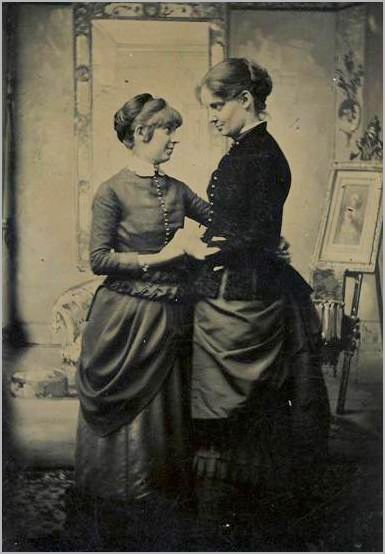
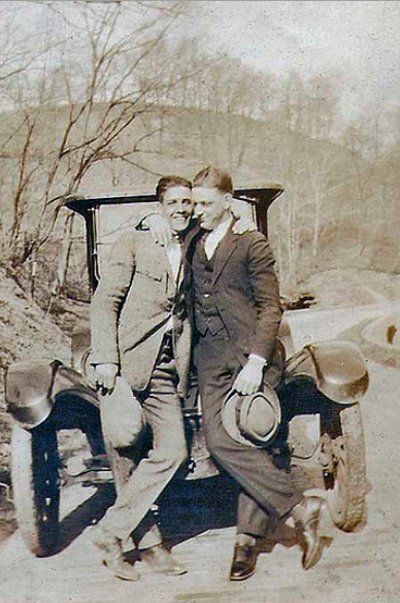
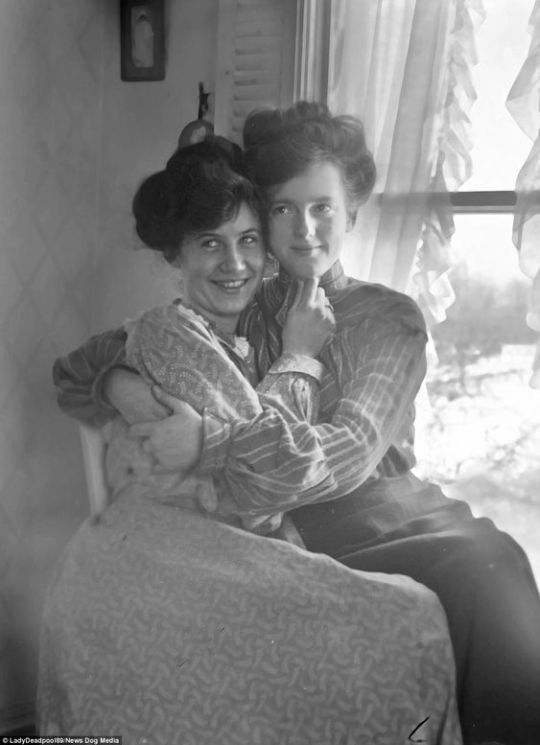
I hate to break everyone's gay little hearts, but without explicit documentation saying so, assuming that these couples are all gay is putting modern queer identity in places where it simply didn't exist. The women in the final picture are sisters. The "not married" boys are bachelors interested in marrying women.
In the silent film Wings, the emotional climax of the film comes in the form of a kiss exchanged between the characters played by Jack Powell and David Armstrong. It often gets attributed as the first gay kiss in cinema history, even on the fucking YouTube clip I found:
youtube
Except it isn't gay. The two men spend the whole film fighting over who gets to be Clara Bow's boyfriend. When Richard Arlen's character is fatally wounded, his dear friend rushes to his side and kisses him goodbye, because in the 1920s, that was considered the ultimate show of friendship. The movie ends with Jack Powell falling in love with Clara Bow.
Similarly, a kiss shared between Lillian and Dorothy Gish in the 1921 movie Orphans of the Storm often gets attributed as being queer, but it wasn't.
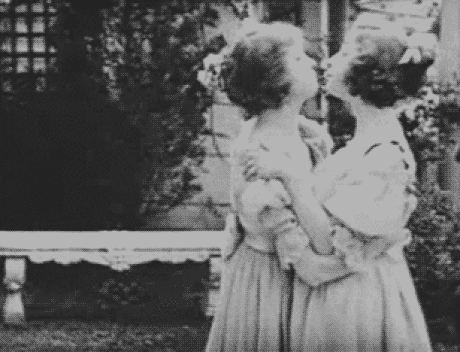
They were sisters playing sisters. None of this was considered unusual.
Pooh-poohing on all of these images that so many people on the internet breathlessly and joyously laud as proud gay history isn't fun. It makes me feel like I'm fucking Ben Shapiro. But if misinformation is allowed to flourish, it allows people like Ben Shapiro to come in and make the argument that queerness is a modern invention and queer people didn't exist in the past.
Everyone loves to see queerness represented in history, but the fact is that none of the stuff in this post would have been seen as explicitly gay and thus shouldn't be called gay today. If we are to understand queer history in its fullness and richness, it is absolutely crucial that we get it right. We owe it to our queer ancestors to recognize, honor, and not embellish the actual lives they lived.
4K notes
·
View notes
Text
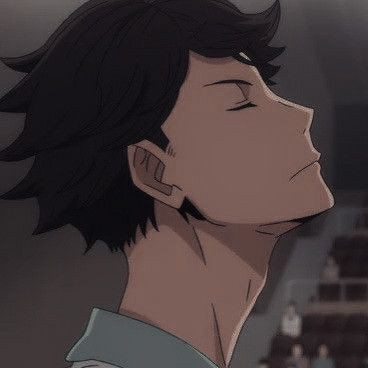
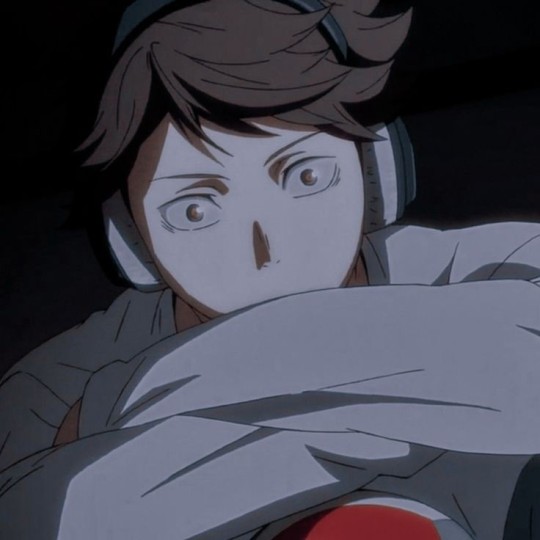
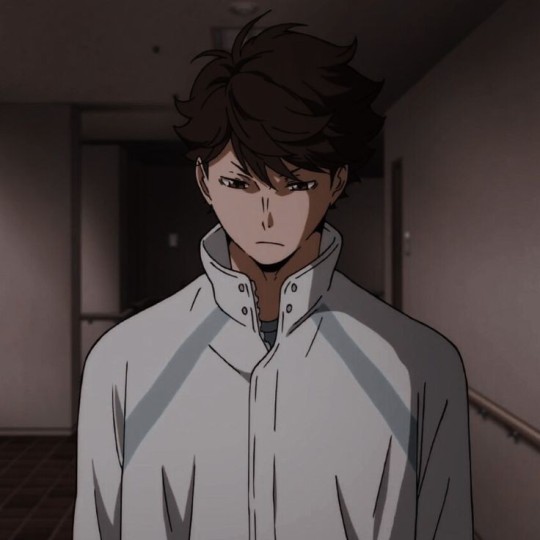

Something that I find interesting about Oikawa is that he would be so observant when it came to you, not even a hawk could rival him.
I imagine him to be quite the pest when he's around you - always making some comment, stealing your things and dangling them somewhere where he knows you can't reach, just overall making all the little things in life that much more difficult. Why? Because he's bored and you happen to have the misfortune of being his favorite person ever. That's why!
But Oikawa takes mental notes, sometimes actual ones too. He probably has several notebooks dedicated to you and you wouldn't ever have a clue. He oozes with both natural charisma and childishness, which makes him a double threat. It is very easy for him to shift these two moods especially when the time calls for it. He sees the way you react because your reactions are important to him.
You are important to him.
That's why he makes sure to stay close to you as much as he possibly can, scaring off any potential threat regardless of sex. He may be a bit softer towards the girls who surround him but he always makes sure to let them down, to tell him that he's spoken for.
You just have no idea that it's you he's talking about.
Oikawa is used to success. But he also understands what it feels like to lose. That's why he does not have the courage to come clean to you. He can't help but to feel a little frustrated with you because, well, how dare you? How dare you exist there and be all cute? It's even worse when other people take notice and they actually have the courage to approach you, which just makes him want to knock their teeth out.
Oikawa is a pest. But in his way, that's his love language. He can be sweet, don't get me wrong! But messing with you is just too fun.
#yandere#yandere x reader#yandere imagines#yandere x you#yancore#yanderecore#yandere aesthetic#yandere male#haikyuu x reader#yandere haikyuu#haikyuu#haikyu x reader#haiku#yandere haikyuu x reader#oikawa x reader#yandere oikawa#oikawa tooru#haikyuu oikawa#hq oikawa#yandere oikawa x reader
1K notes
·
View notes
Text
I used to get insecure when reading radical critiques of "born this way" narratives, but I understand it differently now. I'm reading early defenses of homosexuals that concede that their "invert" pathology is worthy of sympathy, and that straight society ought to allow them to have sex (in the right circumstances) so they don't have to be miserable. They go on to claim that while some people who commit homosexual acts are victims of their circumstances, the real perverts are ontologically straight men who commit them by choice.
If I asked every LGBT person I know, "did you choose to be queer," virtually everyone would say no. I have never, to my knowledge, met anyone who would say yes. But if I asked them if they would turn straight/cis if they could, I believe that most, including people who have gone through great hardships on account of their identities, would still say no. The phrase "gay lifestyle" is considered politically incorrect, and indeed there is no one gay lifestyle. But we have also developed culturally distinct circles associated with pleasure as a virtue, creativity, individual dignity and collective care. Many of us learned to look at the straight world not with envy but with relief that we're not part of it.
There are characteristics of our queer identities or behaviors that are a choice. I did not choose to be attracted to men, but I did choose to be promiscuous. I did not choose to be uncomfortable with "male" gender roles, but I did choose to challenge them through gender expression. An emphasis on innateness would imply that the only characteristics of my identity and behavior worth defending are those that are inevitable. It would ask why I still insist on living the way I do when my sexual desires can now just as well be satiated in a legally recognized monogamous marriage.
The subtext of this question, a choice or not a choice, is whether a person is worthy of support. Much like the elusive "gay gene," some trans advocates are searching for the definitive proof of "male brains" and "female brains" that will validate the existence of trans people once and for all. If gender becomes medically or scientifically "provable," perhaps science would then validate trans people. Or, perhaps a brain scan would determine who should or should not consider themselves trans, and create new rationalizations to misgender on "scientific" terms. We need only look back to the sexologists of the late 19th and early 20th century, often gay themselves, who developed scientific rationalizations for queer behavior in good faith only to have them reapplied to nefarious ends.
Many will insist they support LGBT people in the abstract but not the specifics of queer culture. These are the tendencies that don't have a scientific or metaphysical explanation. It is less often we hear claims that one is born to be flamboyant, promiscuous, left wing, kinky or polyamorous, so these tendencies are superfluous. There is a platonic ideal of a lesbian, a gay man, a bisexual or a trans person who follows their natural proclivities and not a step further, and you're not it. So arguments against born this way narratives are not just in defense of those who see themselves as having chosen their gender or sexuality--for what it's worth, I have not knowingly met any. It's that this is a flimsy claim to legitimacy, one that has been used against us, and one that can only be taken so far. I'm not interested in determining who is "faking it." I understand more and more that everyone's body belongs to them, and the steps they take to experience joy and mutual pleasure need no explanation.
2K notes
·
View notes
Text
I need to rant for a moment:
AROACE IS A SPECTRUM, NOT A BINARY
As someone who is on the AroAce spectrum myself, it’s beyond frustrating that people claim to advocate for AroAce rights and representation don’t understand this.
The Aromatic spectrum can mean someone isn’t interested in romance at all to someone(like me) who only wants a romantic relationship after developing a deep connection.
The Asexual spectrum can mean someone is repulsed by sex and sexual things, to someone who is okay with having sex and doing sexual things while having no sexual desires themselves.
I understand that some people are just misinformed but I’ve seen some genuine animosity floating around in the Hazbin Hotel fandom specifically.
Alastor is canonically AroAce, but we don’t know what points are of the spectrums he’s on. On top of that Vivzipop herself has stated she’s okay with people shipping Alastor with other characters
In addition to that, QPR(queer platonic relationships) exist.
#mtdreamcatcherspeaks#mtdreamcatcherrants#dreamcatcher rants#ranting#tw rant#cw rant#tw sex mention#cw sex mention#hazbin hotel#radioapple#charlastor#radiodust
612 notes
·
View notes
Text
as a sometimes sex-favourable, zero sexual attraction asexual, it really does bother me how many people think that being sex-favourable inherently means being grey-asexual, regardless of whether we actually experience attraction.
i've seen this from aces and allox people alike. it's like people are still holding on to this allonormative idea that the only reason to enjoy sex or want to have sex is attraction, and if someone is sex-favourable they must be allox or at least grey-asexual. you all are STILL perpetuating the "asexuality means no interest in sex ever" and every ace who does have some interested in sex must be grey-ace.
like, nah.
the fact that i sometimes want sex doesn't change that i never experience sexual attraction. it doesn't make me less asexual. it doesn't make me more allox.
sexual attraction and sex-favouribility stances aren't the same thing. sex-favourable aces without any sexual attraction exist. sex-averse allosexuals exist. it's annoying to see how many acespecs still don't understand the difference and perpetuate the same shit allosexuals do. action does not equal attraction.
this is not to say that someone can't label themself grey-ace based on sex-favourability, it's just really annoying to see sex-favourability included under grey-asexuality by default when lots of us are strictly asexual.
as a mainly sex-indifferent ace, i also wonder where they'd put us in this fucked up system? we can't be easily put in a "interested in sex" or "not interested in sex" box. are we grey-ace because we're not clearly saying no to sex as a whole? are we strictly ace because we're not clearly saying yes to sex as a whole?
iwish allox and ace people alike wouldn't disregard my lack of sexual attraction and only focus on sex-favourability. you're literally just trying to focus on the thing that makes me most similar to allos. stop
2K notes
·
View notes
Text
Being someone who sees a lot of talk about shipping Alastor (sexually, romantically) in fanworks, I just want to take some time to talk about both sides of the issue. It's long, I know - please, please bear with me until the end, and I hope you'll understand what I mean in a bit.
I hope this helps someone, but as an aroace person who understands the frustration and hurt, this is often how it feels to me:
Alastor, being one of the limited cases of aspec rep that I've seen and one of even fewer which I actually enjoyed, means a lot to me.
That being said, his canon rep establishes that he's aroace but not much about how this factors into his life or relationships at all -- and when there's a gap in canon, I turn to fanfiction, which tends to spotlight characters' queerness even when the source material doesn't or can't. Don't we all want to see ourselves in the media we engage with?
When I pull up AO3, there are already a good number of fics about him. Great! Some of them are definitely incredible; but as I read on, it starts to seem like a lot of fics I see acknowledge that he's asexual or aromantic in some way but don't really factor that into the story. It reads like you could have written the story without keeping his queer identity in mind, and it would've come out the same.
Even when representation that does resonate with me exists, it starts to be exhausting to pick through the slash tags to see which ones are written in an aspec-coded way, so I wonder if it would be easier to not read anything with slash at all. On the other hand, when you filter ships out completely, only a tiny fraction of the fanworks are left.
People often respond that aspec people can have relationships, and I think we tend to know that. They can have sex, some can experience sexual attraction in select situations, they can romance others beyond romantic attraction -- any combination of things. But some aroace people don't want either, and sometimes we're struggling to see ourselves in how Alastor is typically portrayed.
Out of all of the fics, sex-repulsed, totally aromantic Alastor isn't seen much. And when Alastor's limited canon seems to be pretty supportive of a reading where he is those things...
Sometimes, you start to feel lost. If fics were evenly distributed along the aroace spectrum of experiences, wouldn't you expect more fics of him being the "totally uninterested" brand of aroace? But there aren't. People seem to have a preference toward seeing him in relationships. Even if they mean well, it can make you think: what does that say about how we view asexuality/aromanticism as a whole?
Is there something less interesting about Alastor, when romance is taken out of the picture? Do others find him less appealing as a character if they can't see him dating, or in love, or having sex or wanting it? Why do we need romance, when romance is already everywhere else, when it doesn't even feel like he was originally really interested? It brings to mind a struggle to be societally accepted, even today.
Even when it's not technically wrong to write Alastor as you see him, being told that we should all be able to ship him however we want can feel like this:
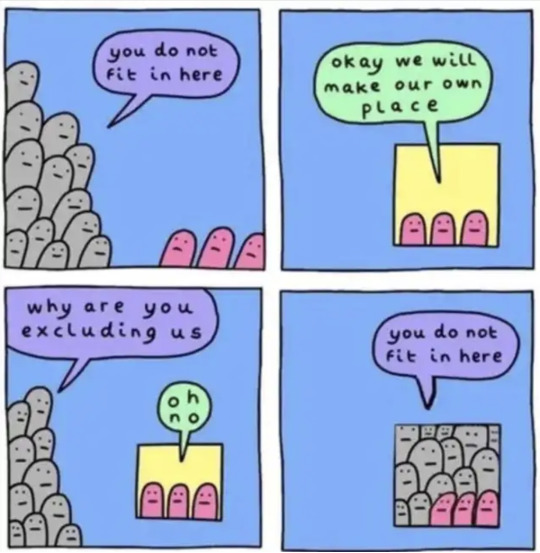
It brings to mind people who try to swing in with misinformed good intentions, telling us "oh, you're aromantic? but you can still have romantic relationships, right? so you can still be normal." when all we want is to be okay outside of the normal.
Or trying to find a partner who can be with us, out of everyone who tells us "I know you don't enjoy sex, and that's okay, but I can't have a romantic relationship with you without it." and being so tired of hoping for someone who gets it.
Or talking with peers, and hearing them all commiserate and fawn over their experiences with love, then telling them about someone you like non-romantically and getting "aww, it sounds like somebody's got a crush!" but not being believed when you tell them it's not like that at all.
Alastor is not a big deal, not really, not in the grand scheme of things. But in an allonormative world, it can feel like a sudden splash of cold water when we were expecting a warm fire to sit around. Even within this ecosystem, we squint to see ourselves reflected.
Society isn't built for us. It can be exhausting to be reminded of that.
~~~
I hope to support people writing Alastor as any variation of aspec, or not even aspec at all. At the end of the day, I think that fanon is really whatever you want it to be, and everyone has their own reasons for writing what they find enjoyable. They should be allowed to do so, and I want to believe that people do what they do with good intentions.
They want to imagine scenarios with the templates of characters they love, and that's okay; even beyond sexuality/queer identities/etc., fan interpretations of characters can be incredibly, wildly different from who they really are in the story anyway, and that's what I try to remind myself. But still, I also can't help feeling disappointed about the aroace representation we could have seen.
(Is Alastor canonically sex-repulsed? Uhh, maybe. If I had to guess, that'd be my top guess, but this might be a hot take: I wouldn't really say there's enough to go off of considering that this view is supported by Angel propositioning him both times, and it's not like Alastor is a particularly big fan of Angel at those points anyway lol)
To my fellow aroaces struggling with Alastor's fandom rep: if you need a break from it all; if you need to block the tags that you hate; if you need to talk to someone about how you're feeling; that's okay. It makes sense that you'd want more representation in a way that helps you feel seen and validated and less alone. I can't speak for everyone, but I think I get it.
I don't have any solutions for how you're feeling, because sometimes I'm feeling the same way. I understand that you want others to get your position and you have the right to express your feelings, but even if you're correct, often being angry or frustrated won't help change others' minds, so let's try to save our energy and take care of ourselves.
Something that helps me to think about is that even now, asexuality is gaining more visibility. We're gaining support. Real change is happening in the world that's helping incredible amounts of aspec people feel freer to be themselves. And maybe one day, we won't be reaching to protect our scraps of representation.
Let's fight until that day together <3
#seriously I appreciate everyone who's out here posting about alastor I love being in the radio demon fanclub lol#just some thoughts that's all and maybe it'll resonate with others#please let's be patient with each other though it's rough out there already#alastor#hazbin#hazbin alastor#hazbin hotel alastor#hazbin hotel#asexual#aromantic#asexual alastor#aromantic alastor#aroace alastor#alastor hazbin#ace#aro
473 notes
·
View notes
Note
As someone who hasn't read the works of radical feminists like Simone de Beauvoir, could you explain what's wrong and what bothers you about biological essentialism? I'm curious about your opinion after reading your post on radfems (and I'd like a perspective that isn't so based on biological gender essentialism, which I honestly have a hard time moving away from because I don't understand other perspectives well). 👀
The problem with biological essentialism is that purports to answer the eternally unanswered question of nature vs nurture in a wholly one-dimensional way - ie, with biological sex as The Single Most Important Aspect Of Personhood, regardless of any other considerations - while simultaneously ignoring the fact that biological sex is not, in fact, a binary proposition. We've learned in recent decades, for instance, that intersex conditions are much more common and wide-ranging than previously thought, not because scientists have arbitrarily changed the definitions of what counts as an intersex condition, but because our understanding of hormones, chromosomes, karyotpying and other physical permutations has expanded sufficiently to merit the shift. So right away, the idea that humanity is composed of Biological Men and Biological Women with absolutely no ambiguities, overlap or middle ground simply isn't true.
Inevitably, though, if you mention this, people with a vested interest in biological essentialism become immediately defensive. They'll start saying things like, oh, but that's only a tiny minority of the population, they're outliers, they don't count, as though their argument doesn't derive its claim to authority from a presumed universality. To use a well-worn example, redheads are also a tiny minority of the population, but that doesn't mean we exclude them when talking about the range of natural human hair colours. But the fact is, even if humans lacked chromosomal diversity beyond XX/XY; even if there were no cases of cis men with internal ovaries or cis women with internal testes or people with ambiguous genitalia - and let's be clear: all of these things exist - the fact is, our individual hormones are in flux throughout our lives.
There are standard ranges for estrogen and testosterone in men and women (which, again, vary according to age and some other factors), but two cis men of the same age and background could still have completely different T-counts, for instance - meaning, even the supposed universal gender factor isn't universal at all. More, while our hormones certainly play a major role in our moods and cognition, so do a ton of other genetic and bodily factors that have nothing to do with the sex we're assigned at birth - and on top of that, there's nurture: the cultural contexts in which we're raised, plus our more individual experiences of living in the world.
One of the most common, everyday (and yet completely bullshit) permutations of biological essentialism comes when parents or would-be parents talk about their reasons for wanting a son or a daughter. Very often, there's a strong play to stereotypical assumptions about shared interests and personalities: I want a son to play football with me, for instance, or: I want a daughter to be my shopping buddy. But even within the most mainstream channels of cishet culture, it's understood that these hopes are not, in fact, grounded in any sort of biological certainty. The dad who wants a sporty son might be just as likely to end up with a bookworm, while the mother who wants a little princess might find herself with a tomboy.
We know this, and our stories know this! For the entirety of human history - for as long as we've been writing about ourselves - we have records of parental disappointment in the failure of this child or that to embody what's expected of them, gender-wise. More than that: if biological essentialism was real - if men were only and ever One Type Of Man, and women were only and ever One Type Of Woman, with recent progressive moments the sole anonymous blip in an otherwise uniform historical standard - then why is there so much disparity and disagreement throughout human history as to what those roles are? The general conception of women espoused in medieval France is thoroughly different to that espoused in pre-colonial Malawi, for instance, and yet we're meant to believe that there's some innate Gender Template guiding all human beings to behave in accordance with a set, immutable biological binary?
And that's before you factor in the broad and fascinating history of trans and nonbinary people throughout history - because despite what TERFs and conservative alarmists have to say on the matter, our records of trans people, and of societies in which various trans and nonbinary identities were widely understood (if not always accepted), are ancient. We know about trans priestesses from thousands of years before Christ; the Talmud has terms describing eight different genders, and those are just two examples. All over the world, all throughout history, different cultures have developed radically different concepts of femininity and masculinity, to say nothing of designations outside of, overlapping with or in between those categories - socially, legally, behaviourally, sexually - and yet we're meant to believe that biology is at all times nudging us towards a set, ideal gender template?
There's a lot more I could say, but ultimately, the point is this: people are different. While some aspects of our personhood are inevitably influenced by genetics, hormones, chromosomes and other biological factors, we're also creatures of culture and change and interpersonal experience. The idea that men and women are fundamentally different, even diametrically opposed, at a biological level - that the major separator in terms of our personalities and interests isn't culture, upbringing and personal taste, but what's between our legs - is just... so reductive, and so inaccurate.
We can absolutely have common experiences on the basis of a shared gender, but gender is not the only possible axis of commonality between two people, let alone the most salient one at all times, and the idea that we're all born on one side of an immutable biological equation that cannot possibly be transcended makes me feel insane. According to modern biological essentialism, intersex, trans and nonbinary people are either monstrous, mistakes or imaginary; all men are fundamentally predisposed to violence, all women are designed for motherhood, and we're meant to just hew to our designated places - which, conveniently, tend to echo a very specific form of Christian ideology, but which in any case manifestly fail to account for how variedly gender has been presented throughout history. It's nuts.
292 notes
·
View notes
Text
OKAY. Am I the only one fascinated by how much Alastor in s1 has interacted with other demons and built a potential for considerable amount of different, broad and unique relationships? With All of them being non-romantic/sexual?
I really don't wanna dive into the discourse of shipping coz honestly, I do think that erasing Al's aroaceness is not cool at all. Personally, I don't see him wishing any romance/sex at all, and well. Considering how platonic he actually is throughout the season, it kinda seems like people forget that friendship (or basically anything non rom-sex) exists in the first place.
Coz, like, let's see what we got::
Vox -- probably one-sided (psychosexual) crush from Vox with possible past friendship between them, them hating on each other yet having (used to have) some respect as well. The ANGST, the drama (for both of sides). Insert aroace troubles (possible aphobia from Vox? Or not? He may be biggest ally as well!) and Vox's petty feelings that are insanely interesting to explore (and laugh at).
Lucifer -- immediate hate that (with a course of events) can turn into forced bonding. The potential of queerplatonic parenting of Charlie is HUGE here. Insecurities from Al? Forced care? Banters? SHENANIGANS? Luci patching up Al after battle, prolly discovering his deal and them slowly bonding on shared interests? Hey.
Rosie -- literal established queerplatonic partners, married for tax benefits, spending their evenings gossiping, hating on Susan and Al rolling his eyes on another romance-rel drama Rosie was trying to help sb with. Rosie can have insane influence on him whether it is understanding modern things or just being with him when he needs it. It also gives off mom/son to me.
Husk -- fucked up master-pet not-friendship with probable care rooted since they were closer in past. Is it toxic? Yes. Is it giving off some problematic dynamic? Sure. Yet it's fucking complex on its core considering pilot, bits and pieces of their interaction and how easily Husk used to insult Al until he overstepped. Them two are quite similar if you think about it and if Al got over his ego it could benefit him a lot.
Niffty -- daugther/father dynamic with them sharing one sadistic-psycho braincell and genuinely enjoying each other's quirks. Protective Al? I just need more Niff and them two being partners in the most outrageous crimes.
Mimzy -- friendship going since they were humans, with them having an amazing (potential) backstory of sharing evenings on two. Al enjoying her company as well as being protective and helpful to her with nothing in return.
Charlie -- manipulated into trusting you as a dad figure? Don't tell me there is nothing below Al's creepy plans or that he wouldn't grow to care for her. He already is proud of her and finds amusement in her inspiration-skills (also, performance is his thing for a reason)
Angel -- I was honestly kinda upset we didn't see any interactions between them except one sex joke, coz my past era of Hunicasts was a fuel to their duo. Them bonding over how different they are is the best description of their dynamic. Also banters and body-puns.
You can't just erase Alastor from interacting with people, but putting him inside boxes of allonormative relationships while he has such a fucking huge potential for everything beyond just that - is quite.. disappointing. People turning a blind eye to a wide variety of relationships he can have (potential to which is set in canon) for the sake of just romance/sex is low key sad.
It's AWESOME to see ppl actually understanding it and.. damn THANKS to everyone who explores Al's relationship with others without it involving final wish to stick tongues into places. Dynamics can be interesting and exciting without it.
I really don't wanna project my romance-aversion onto Al, but when romance and sex is one thing you see everywhere.. it's hard to just let it slip.
You are allowed to do whatever you want, exploring physical intimacy is fun as well, and having Al, well, there are bunch of ways to show it with respecting his orientation and the fact that IT AFFECTS RELATIONSHIPS/ATTRACTIONS but please just don't make it the center of your attention, the one thing relationship revolves around, coz sadly it's just exactly how it looks like from some folks.
#hazbin hotel#aromantic#hazbin hotel alastor#aroace alastor#aromantic alastor#asexual alastor#asexual#radiostatic#onewaybroadcast#radioapple#appleradio#radiorose#radiohusk#radiodust#charlastor#alastor x mimzy#<- as duos/dynamics/nonrom ships#NOT IN SHIP-SHIP WAY#i mostly made this post just to express how MUCH i like the fact that canon explores Al so broadly#im kinda Al multishipper. just. not romantically#it turned into discourse at the end didn't it?#my aro ass is sorry#but not really#i just want more attention to a platonic side of relationship#whoever it is with honestly#and i'm done seeing people almost erasing every single platonic interaction after romantic/sexual ones are introduced#i love ppl being intimate yet remaining platonic tho
157 notes
·
View notes
Note
I have an honest question and I don't want to sound rude or anything at all but what's so interesting about CNC. Like I see people hype it up but to me it just feels like romanticizing r4pe..I'm not really into CNC so I can't talk bad or downplay whatever they do but I'm just asking because I want to understand it better.
A question I, by no means, can answer perfectly. However, in the spirit of philosophy and amateur psychology, I will lay unto you, ye who have keen ears, my theories.
Now, I am in no way a psychiatrist. However, as I am a woman who does a great deal of fantasizing and further thinking of what I fantasize about, I thought I might assume the role of a sexologist as it is no protected title.
I’ve long wondered why we (women) fantasize about things that would appall us if manifested in reality. It makes little sense that an act so ruining in practice should make us feel fulfilled when the mere thought of it is humored.
In the vast complexities of psychology, no matter how much I drink of its depths, I can’t seem to get my fill enough to understand it. Trying to figure out female arousal is like pulling hair from a clogged gutter and trying to undo all the knots. It’s a web of contradictions.
However…
First theory – there are cultural reasons. If we accept the inbuilt instincts of old and the instincts we adopt through media while growing up – all in all, the great history of aggressive men dominating passive women – we are conditioned to accept that this is what romance looks like.
Second theory – there are the emotional reasons. The "Beauty and the Beast" motif – featuring classic co-dependency. Women submit to abuse because we have an inbuilt need to nurture others – so when we love men who require to abuse and own us in order to love us, we somehow forget to protect ourselves in favor of loving them, which in this case means allowing them to abuse and own us. It's warped.
Third theory – there are psychological reasons. In fantasies and writing or viewing, we get to reframe traumatic experiences in a positive light or rework traumatic experiences in a safe environment – a form of psychological self-defense, much like Stockholm Syndrome or a type of self-inflicted Post Traumatic Stress Disorder.
Fourth theory – research has also been conducted regarding physiological reasons. Here, we have another inbuilt self-defense mechanism – a seldom talked-about phenomenon – which shows that women tend to become physically aroused when they sense any possibility of sexual aggression in their environment – in order to lower their chance of injury if they are raped.
Through all this, I believe one can narrow fantasies of rough or non-consensual sex into something as paradoxical and polar as having a wish for control and a wish to relent oneself of it. And coming to this conclusion, I realized that such is the pursuit of many, even in endeavors not of the erotic kind.
Humans wish to have control just as much as humans disdain having control. This is why BDSM (bondage, domination, sadism, masochism) kinks and fetishes are found in some shape or form in nearly every romantic or sexual relationship in existence. You’ll have the dominant partner wishing to achieve control over a submissive partner wishing to relinquish control through such means of domination, humiliation, pain, and pleasure.
But it’s more complex than that, isn’t it?
Yes. Because, contradictory – a submissive partner may wish for control, and a dominant partner may wish to lose it. Human beings are an unyielding paradox where we flex across contrasting aims with no means to an end.
Yes, we wish for control, yet disdain having it. Perhaps we find the answer to this paradox in maintaining control by losing it?
Moreover… how does this relate to nonconsensual sex fantasies?
Here, we get a fifth theory containing the ego – a spin-off of a kind from the third theory. Here we find the wish for control, where, in the lustful fantasy realm, non-consensual sex bolsters a woman's feelings of seductiveness and desirability in the way it has the power to make a man lose his decency and self-control, driving him to commit crimes of passion despite ill consequences of losing his pride and honor as a man – also, ultimately, risking getting sent to prison.
Put simply, some women enjoy the idea of being irresistible enough to drive even a good man crazy. The thought of being attractive enough to make a man love-sick and the power and control that follows it is, in this case, a turn-on.
A sixth theory – another spin-off from the third theory – is that fantasies of rape allow women to reduce the distress associated with sex, as they are not, in this scenario, responsible for what occurs. Moreover, the logic here states that when one is forced into something, they’ll have a lesser need to feel guilt or shame about acting out their own sexual desires.
Put simply, some women wish to maintain their innocence despite having carnal desires only satiated by means of sinful acts.
This begs another question.
Is this a lingering feeling of guilt and shame around female sexuality?
Of course! Women are constantly met with disdain when open about their sluttiness.
So, are fantasies of nonconsensual sex a type of projection they do because of this?
In some cases, yes!
Transferring our own sexual desires unto another gives us permission to act them out without feeling guilty or dirty – because, inside this fantasy, it isn’t us committing the indecencies.
... Okay then...
Summing up theories five and six:
Control. To feel wanted, lusted for, obsessed over, and coveted by others. The power of driving someone to lovesick desire, a frenzied state, where they would do anything, even illegal, to have you. Additionally, despite such harsh cases of ego, wanting none of the responsibility for it, wanting to be free of sin, to maintain innocence and purity in light of such dark desires.
Or is there a seventh theory? One found in our idyllic construct of freedom – this aimless goal of ours to make ourselves appreciate breathing – done by balancing the electric powerline between having and losing control.
Is it this act of switching places, the attraction and pull, the stimuli and response, the attack and retaliation? In the chaos of contradictions and uncertainty, we find a thrill that occupies our otherwise hibernating minds – bored to the degree that we become machines in our daily programs.
Is it simply that we need a little extremity as a remedy for our dull lives?
Do we fall in love with illegal things simply because we are denied them? Simply because they’re illegal? Self-harm, drug use, gambling, murder, rape…
Are these things a part of us? And are we, without them, left feeling unfulfilled? Is The Purge perhaps onto something vitally important? A cure for boredom, this mediocrity that leaves us feeling so blue?
I think, if I were to find a comparison, it’s quite similar to the blind bounds of excitement others ascend to in the midst of playing violent video games. The rush of falling in and out of enemy territory, of danger and safety, from being a predator to becoming the prey, of victory and defeat, of chasing death only to be comforted by one’s remaining life – because in reality, you're safe and sound in front of a screen.
Also, in other cases - rollercoasters, horror movies, extreme sports, etc...
Yes, the wish to trip in and out of control isn’t limited to the realm of lust but is present in most aspects of life. We find it in extreme cases such as drugs, gambling, gaming, relationships, and in other subtle cases of professions and work.
If you don’t like it, that’s your business, and I wish you the best of luck in lust elsewhere.
On another note – and such another warning and disclaimer – I want you not to accept my tales of lust as love stories. Personally, I think hints of toxic displays such as jealousy, obsession, and possession in a partner are natural – but – a difference is made when such feelings become restricting to a degree you no longer feel free. I implore you to make such distinctions for yourself when regarding yourself – and, in extreme cases, when regarding others.
In said regard, I do not condone the events nor the actions of the characters in my stories – neither offender nor victim. Don’t allow yourself to fall prey to toxic partners! The signs are always there – keep a weathered eye out for them.
And no, I’m not blaming those who’ve allowed themselves to stay in toxic relationships. I, myself, am guilty of that. But I won’t excuse my poor judgment either. You know when something doesn’t feel right. We shouldn’t blur the lines of right and wrong in the name of love – or whatever else we may lend our self-control to – such as religion, culture, family, societal pressure, etc...
You are in control. Don’t forget it. And don’t allow anything else to become the case.
260 notes
·
View notes
Text
Thinking about blasphemy and Good Omens right now and I can't help but notice an interesting phenomenon around some discussions I've seen about the Second Coming and Jesus Christ being a character in S3.
Namely, I see much more underlying discomfort around the possibility of the show poking fun at the figure of Jesus Christ than I do with any other prediction discussion or discussion around religion in the show.
On the one hand, I completely understand how poking fun at the Antichrist dogma from Revelations doesn't feel particularly blasphemous, where poking fun at Jesus does. The Antichrist is a stock character of horror at this point. Many more disrespectful teams than Gaiman and Pratchett have played with that story. It's barely even considered poking fun at Christianity to have Adam, the son of Satan, be a good kid in Good Omens. But Jesus is a very important figure to Christians all over the world. There are devout Christians who truly love Jesus and no one wants to be a jerk by just outright disrespecting a figure that is dear to so many.
But on the other hand, expecting Good Omens to not make fun of Jesus is a bit absurd to me. Literally saying, "I don't think the satirical religion show is going to satirize religion because it might upset people." Gaiman hasn't shied away from messing with religion or religious bigots before. He gleefully shrugged off attacks over God being a woman, or Adam and Eve being portrayed by people of color.
The Book of Job is lampooned in Season 2. I know it doesn't feel like it to many people here, but the reinterpretation of the Book of Job in S2 definitely registers as blasphemy on some religious scales. It is satirizing a religious text after all.
Saying that angels and demons fall in love and worse, have that love be portrayed by actors of the same sex could be seen as blasphemy at the very least on the level of saying God is a woman. And by the way, it's not like these religious texts say "God is whatever you want the entity to be" or "God is a woman if that makes you happy". Hell no, the Bible is extremely damn clear on God being male. The official position of the Catholic Church is that God is male. Official Catholic dogma is incredibly anti-female in terms of inherent holiness, women cannot become priests, even nuns are dependent on a priest to deliver the Sacraments, it's a huge deal and they are not planning to change any time soon and it is totally unambiguous.
Making God explicitly female might not seem like a big deal since films like Dogma, another religious satire, did it in the 90s but to True Believes in the official doctrine, that is a form of blasphemy.
Good Omens is by definition a blasphemous work. How offensively blasphemous it is really depends on the devoutness of the viewer. And I find it interesting the extent to which there's something of a knee jerk, "Oh they won't do that!" in terms of further satirizing religion in the show about religious satire. As if Jesus hasn't been satirized in other mainstream movies before like the aforementioned Dogma or Life of Brian.
And here's the thing, my personal opinion is? Blasphemy is good! Blasphemy laws on the books mean it's ok to punish, hurt, or even kill a person for making fun of religion or just doing the religion wrong. Human progress has been frozen in place by blasphemy laws, sciences have progressed when blasphemy laws ease or often while deliberately concealing their efforts from authorities in places where blasphemy laws or laws that were otherwise based on the dominant religion exist.
If anything, I am actually a bit uncomfortable with the idea that Good Omens should hold back on lampooning a figure like Jesus Christ. If devout Christians will make laws that determine what other humans can do with their bodies based on their religion, then their religion should absolutely be open to outright mockery without punishment or ramification to anyone. Of course on an individual level I wouldn't wish to be offensive to someone sincerely religious but at the same time, I am also violently anti-censorship of any kind. And blasphemy and religious mockery are often right at the heart of censorship debates.
The world is a better place when we can openly mock religion.
I'm not going to caveat that as an opinion. Being able to openly and without fear discuss, criticize, and mock religion is an incredibly important part of any free society. The battles over this right have been vicious and bloody and are actively ongoing around the world. Just as an example, anti-blasphemy laws were on the books in Ireland until 2020, there was a huge campaign to have them removed because other countries were pointing to them as an example of why they should keep and exercise such laws.
My point is that I suppose this is something of hyperbole or alarmist or overly strident. I can understand people wanting to be decent about not openly mocking a figure of such importance to so many like Jesus. But quite honestly? I hope Good Omens does whatever it pleases with mocking Jesus. I hope they don't hold back. I hope people remember that being able to mock religion is really important, especially when representatives of that religion are actively trying to clamp down on the rights of others.
And honestly, if religious people are offended they should just not watch or they should develop a thicker skin if they expose themselves to such discourse. Religion and Christianity in particular is an active part of the public sphere. It is worthy of discussion. Public discourse often includes mockery, especially of the powerful and of powerful forces that steer the course of nations, like Christianity.
And I think it's important for Good Omens fans, who are a very progressive group, not to cherry pick and moralize over what satire or blasphemy is permitted. All satire should be permitted. All blasphemy should be permitted. The religious bigots don't care if you think God being a woman is ok but making fun of Jesus isn't. It's all the same, anything but glowing praise is criticism to some of these forces. Open discussion is far more important and yes, that includes mockery, and silly discussions in a silly show about an angel and a demon who avert the Apocalypse and fall in love.
495 notes
·
View notes
Text
2024 : MANIFESTED ALL MY DESIRES IN ONE YEAR
Part 2
Love life :
I'm having the best relationship this year! It's literally the healthiest relationship I've ever been in, its even beyond what I imagined! I literally met my perfect match our compatibility is off the chartsss we're so perfect together. He's def my soulmate we get eachother so well without even speaking. It's amazing how much fun we have together , it's so lighthearted yet deep , it's transparent and beautiful and pure. Ugh our love is so powerful! He treats me so well he spoils me all the time like I'm his princess all I do is just exist and he's like "omg goddess I'm obsessed with you". Not to mention he's so loyal, honest, generous, kind, masculine, secure, handsome, rich, he provides for me endlessly, he makes me laugh, I feel so comfortable and safe, our dynamic is the best I feel so grateful and he feels the same. This is literally one of the biggest highlights for me this year 😍 a love so powerful, passionate yet peaceful and uplifting. Marriage is def around the corner!
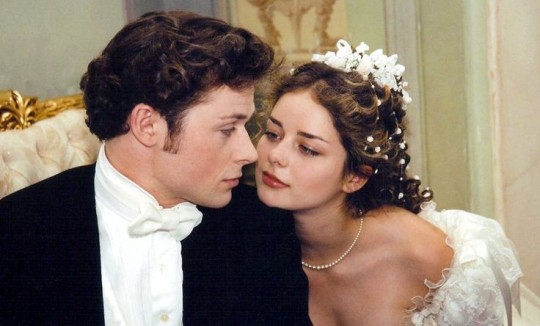
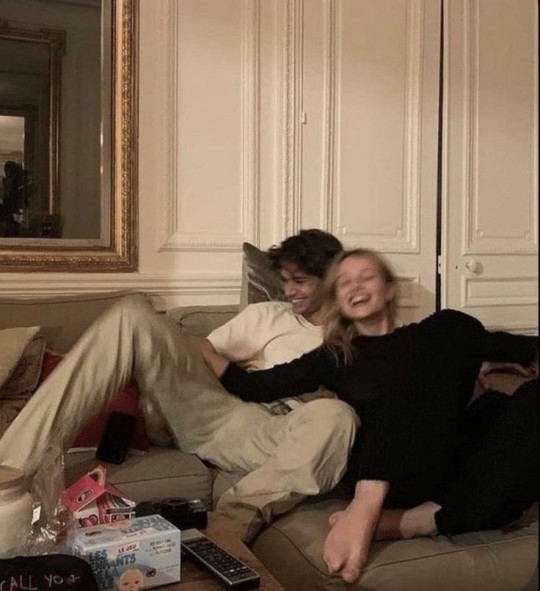
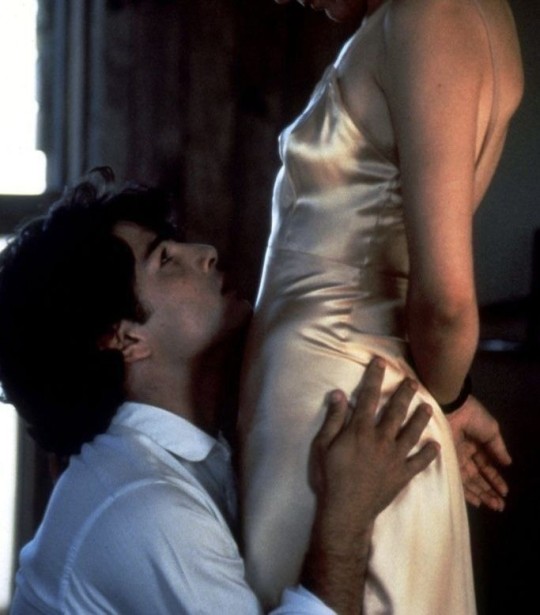
Social Life :
My popularity increased so much this year! Everyone seems to wanna be either my lover or my friend! Ig bc I've been focusing on myself and my life everyone is so magnetically attracted to me! I made some really amazing solid friendships this year ♡ I feel so blessed to have such good genuine friends who share my interests! It's amazing how much my social circle expanded this year I've def been getting out of my comfort zone and feeling much more extroverted, outgoing and confident socialising and connecting easily with others! I'm so charming and pretty and smart that people fall in love with me easily, I'm so easy to love, I lost count of how many love confessions I got this year! So many men interested in me and pursuing me, I'm literally everyone crush this year! I'm such a people magnet, my aura is so attractive and magnetic people find me so interesting and fascinating! Im not only pretty but i have a great personality, the best energy, and a beautiful rich mind and soul, that's why everyone is so drawn to me. I'm so good at relationships , I'm consistent, secure, open to give and receive. It's easy for me to maintain relationships and allow them to grow and flourish naturally and beautifully! I feel so blessed to be surrounded by supportive loving trustworthy people who understand me and want the best for me, they truly care about me. I love how comfortable I am meeting new people and forming genuine deep connections, it's so natural for me. Everyone is so sweet and kind to me, they treat me so well, they buy me gifts ,they constantly spoil me with love and attention ,they see my worth and value.

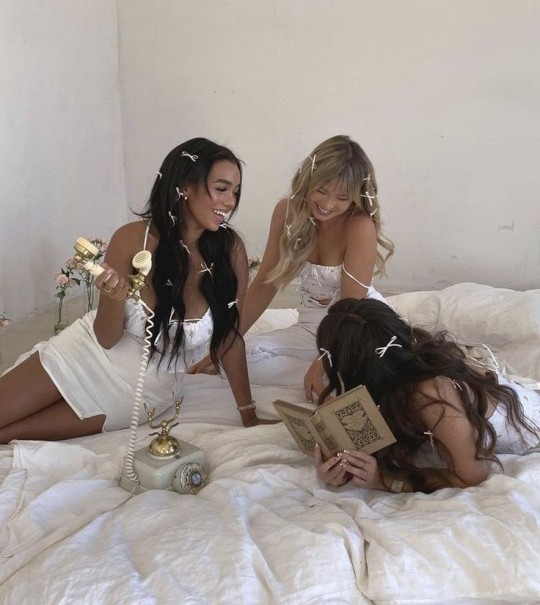

Extras :
I'm such a money magnet! I'm making sooo much money this year it's crazy it's like money is obsessed with me lol. A high value expensive woman like me deserves the best and attracts the best always ♡ I'm treated like VIP everywhere I go. My energy is so powerful it shakes every room I enter, I'm easily the center of attention cuz w my charismatic presence, everyone's eyes are hooked on me they're so infatuated w my beauty. My aura radiates abundance , security and confidence, I'm so calm and secure which makes me naturally the most confident girl in the room. My confidence, my charm, my popularity and my charisma increased dramatically this year! I'm fully tapped in my inner siren inner goddess energy this year and it SHOWS. My sex appeal and my beauty is beyond compare. I'm known as the it girl and everyone is inspired by me and thinks of me constantly, they're waiting on my every move bc im so iconic and such a trendsetter. I put myself out there and I succeed everytime without a doubt. I'm born to be seen I'm such a star girl ☆
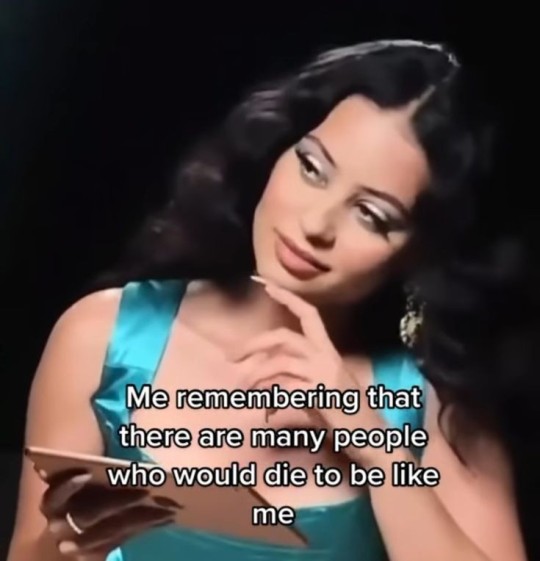
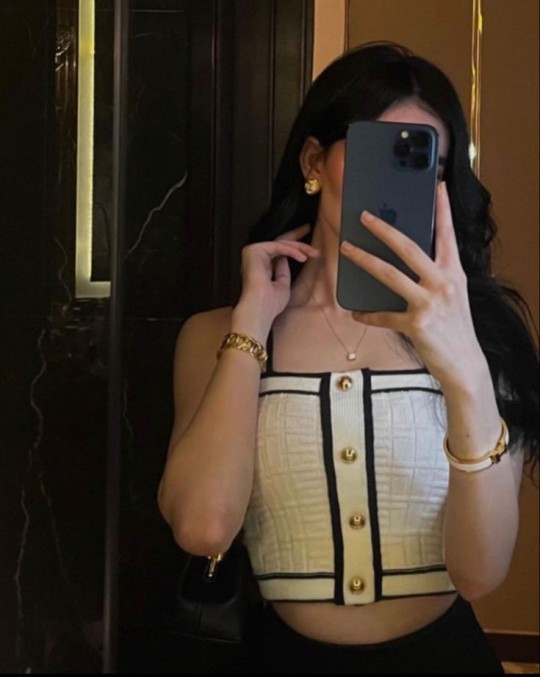
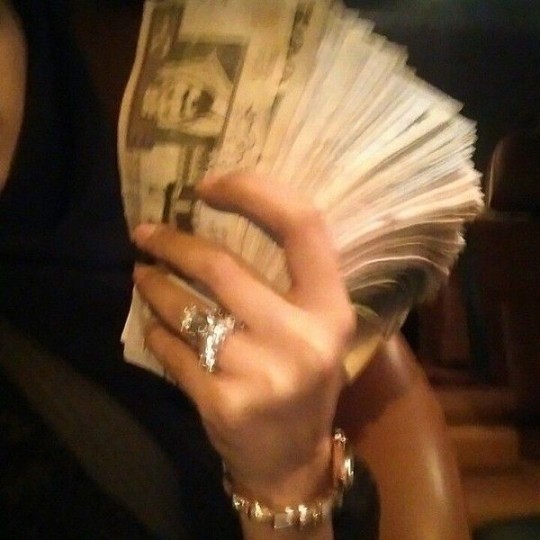

For my 2024 subliminal visit my YouTube channel kali777
#neville goddard#self concept affirmations#law of assumption#lawofassumption#manifestation#powerful affirmations#self love affirmations#beauty affirmations#master manifestor#creator of my reality#beauty subliminals#subliminal results#shifting#2024 affirmations#2024 manifestation#2024 manifesting#2024 scripting#success story#lao vaunts#lao blog#lao scripting#vaunts & affirmations#4d reality#nondualism#nonduality#it girl affirmations#love affirmations#sp affirmations#feminine energy#divine feminine
292 notes
·
View notes
Text
amanda udis-kessler, from present tense: biphobia as a crisis of meaning, from bi any other name: bisexual people speak out, edited by Lorraine Hutchins and Lani Kaahumanu, 1991
["Before 1869, everyone was heterosexual and no one was heterosexual. By this I mean that all people were believed to be biologically oriented toward people of the opposite sex, there was no need for a word or category "heterosexual" since there was no opposite or conflicting category "homosexual." Certainly there were homosexual acts, homosexual behavior, but no homosexual people and no word "homosexuality." The fact that there could be behavior contrary to what was understood as natural did not cause anyone to rethink their concepts of the natural; rather, they simply labeled same-sex acts unnatural. Biblical injunctions against homosexual behavior must be seen in this light.
In 1869, the word "homosexuality" was coined and the concept— and category— of "the homosexual" came into existence, requiring the "discovery" of the heterosexual as well. I don't mean to suggest that heterosexuality was thought of as anything other than normative, or that homosexuality was taken seriously as a biological entity at that point. Physical and psychological understandings of homosexuality competed, but the constant which is of interest to us here is the depth of the homosexual identity which was brought to light. Sexuality was not simply a matter of acts. It involved an essence which did not change easily if at all. At the end of the nineteenth century, there were two identities to match sexual acts where none had been before, two categories of person: heterosexual and homosexual.
If we jump ahead a century to Stonewall, we notice a dramatic change in the meaning of the homosexual identity. The early gay liberation movement, revolting from decades of assimilationism a la Mattachine Society and the Daughters of Bilitis, took on an ethnic model of oppression and counterculture. In doing so, it maintained pre-Stonewall essentialism while adding a separatist politics. In this model, lesbians and gay men, drawing on the civil rights movement, defined themselves as an ethnic minority with sexuality rather than skin color the determining factor and with homophobia rather than racism as the oppression.
Lesbian and gay activists had long taken the insight of experiencing sexuality as beyond choice and considering this proof that it was a natural part of their sex drive. Interestingly enough, while this approach would seem to require a straightforward correlation between sexual behavior and core identity, such a correlation was not made. Many lesbians and gay men came out after being heterosexually active, and some of these people had enjoyed their heterosexuality; they simply enjoyed homosexuality more. Lesbian and gay essentialists simply switched the heterosexual assumption of prior ages and claimed that these people were essentially gay, regardless of their sexual behavior. Thus, a woman who came out as forty had really been a lesbian all along but had not been in touch with her true sexuality.
The acceptance of essentialism was not universal, however. Some psychologists and sexologists raised troubling questions about this conception which could invalidate forty years of a woman's life. They asked whether the experience of sexuality as beyond chosenness necessarily meant that it was biologically grounded. They asked why sexual identity appeared in such different forms in different cultures, and whether essentialism didn't carry with it a certain cultural imperialism. These constructions posited that the categories of homosexuality and heterosexuality were constructed rather than discovered a hundred years ago, created because changing social circumstances dictated a need for such categories. Without denying the place of nature in our lives, they pointed out that socialization affects us tremendously, including the extent to which we think nature shapes us.They argued that sexuality is not simply the unfolding of one's natural essence. Rather, sexuality is learned, relational, contingent, and unpredictable; sexuality is as sexuality does. There are sexual scripts within every society and there are variations on those scripts in every society.
As we may imagine, the constructionist view of sexuality, with its fluidity and its connotation of choice, threatened lesbians and gay men as soon as it was proposed. Constructionism challenged the "oppressed ethnic minority" approach by arguing that sexuality could not be compared to skin color as a natural phenomenon. The response of lesbian and gay communities was understandably fierce; as Steven Epstein notes, "people who base their claims to social rights on the basis of a group identity will not appreciate being told identity is just a social construct. Constructionism could not offer a sound political replacement for essentialism. "[O]nce we have deconstructed identity," so the fear went, "we will have nothing.... which is stable and secure upon which to base a politics." The upshot of this thinking was that sexual theorists continued the essentialist versus constructionist debate in academic journals and other settings, but it had little impact upon community members and their separatist culture and politics. This has remained true since the early days of gay liberation, with Steven Epstein noting in 1987 that "while constructionist theorists have been preaching the gospel that the hetero-homosexual distinction is a social fiction, gays and lesbians in everyday life and in political action, have been busy hardening the categories."
What does this have to do with bisexuality? Consider a lesbian who has gone through a traumatic coming-out process with loss of family and friends, but who is finally secure with a lesbian identity in a supportive community. Or consider a gay man who has spent his life being harrassed and hurt for being gay, who knows personally that oppression means having one's choices removed but who has been able to rebuild his sense of having choices and his sense of humor within an urban gay male culture. Sexual essentialists are secure in their assertion that these two people may have had to suffer but that now they are home and able to build and love and fight back. But what if this man or this woman falls in love with someone of the opposite sex? What, then, was their pain and suffering about? Do the experiences which shaped them mean nothing? Was there an easier way? And should they have taken it? What is the connection of their pasts to a new and surprising present? Both of these people have come through tremendous soul-searching to reach their gay and lesbian identities, which provide them with a myth by which to structure their lives, offering social and political meaning to their personal histories. Is the myth that fragile? Is their sexuality that fragile? How are they to be true to themselves and what does being true to themselves mean in this situation?
The larger lesbian and gay community carries a great deal of shared pain; indeed it is built on it. Stonewall would not have happened without a bunch of drag queens and some diesel dykes being so sick and tired of being sick and tired. When lesbians and gay men who are deeply connected to their communities ask the questions above, the whole community feels the effect. If enough people ask them, the collective myth— and the community— are in danger. For both can only remain intact if the pain which built the community was in some way the inevitable product of being oneself in a heterosexist society. This brings us back to the essentialist versus constructionist debate, but with a clearer sense of the urgency behind the response to constructionism. Just as bisexuality would threaten the gay man and lesbian described above, the fluidity and connotation of choice within constructionism would seem to challenge both the history and the future of lesbian and gay communities.
Now we are in a position to see the leap of logic which has accounted for so much lesbian and gay biphobia; it is a leap which connects bisexuality and bisexuals to sexual constructionism and both to a crisis of meaning which may be both personal and communal. Lesbians and gay men, protective of the essentialist view of sexuality, equate the fluidity and apparent choice-making of bisexuality with that of constructionism and feel a tremor in the structure underlying their lives and identities. No matter if, unlike the examples above, they do not experience bisexual feelings themselves, constructionism claims that the potential is always there, and that is enough of a threat.
When bisexuality equals constructionism, bisexuals become walking reminds of the potential crisis of meaning for lesbians and gay men, posing a threat to identity and community far greater than the one posed by heterosexuals. Lesbians and gay men have been able to define themselves as other than heterosexual; bisexuals challenge that definition regardless of our intention to do so. Behind the painful lesbian and gay biphobia which we have experienced is a poignant cry for a self: "you don't exist" means "I do exist." And, too, the rejection of a group ("go form your own communities; you're not welcome in ours") is a way for lesbians and gay men to claim a group identity, to say "we exist, not just as individuals but as a community." This fragility may be hidden beneath flippancy, sarcasm, culture, and camp, but any bisexuality education which does not keep it in mind will not open barriers where it counts: in the heart.
What, then, about heterosexual biphobia? Is there, strictly speaking, such a thing? And if so, from whence does it come? Taking these questions seriously requires looking at some of the sexually problematic messages heterosexuals have internalized without having to challenge them as lesbians and gay men do. These messages basically revolve around the interface of sex negativity and dualistic thinking that permeates our culture."]
93 notes
·
View notes
Note
I always appreciate the space you give to marginalised artists on your blog, in particular marking certain dates like yesterday's World AIDS Day with select individuals. It's a small thing, but it means very much.
That's a very kind thing to say, thank you.
There's really so much great art in the world, from everywhere, I wish i had more time to delve into and understand it.
Personal story:
When I was young teenager, I used to hang around a lot of artists and teachers. When you're a certain age, just being around people who live their life in a particular way is fascinating. These people did acting and sculpture and dance and they put on plays and painted murals and, most importantly, welcomed anyone who was interested to learn or participate in their whole world. These are people who would play you Miles Davis, introduce you to their favorite southern Indian restaurant, or take you to a Fellini movie. I almost could not conceive of the freedom these people displayed. The joyfulness of making art seemed like a whole world that had been hidden from the more mainstream part of society I grew up in.
Because I wanted to be an artist, I got so much encouragement from a whole community of older artists. It would be hard to calculate how important that was to someone trying to figure out if they could do these things as an adult. One teacher of mine at school was a mentor and a friend who gave me a book by Heidegger when I was 15. It was a small personal gesture of confidence that I could get something out of it. And that confidence made me feel responsibility, I think. Like, if someone you admire thinks you can do something maybe you should investigate it.
Another friend lent me her apt when she was travelling for 6 months. I was 16 and I never had my own place. This was a lively part of the city, you could look out your window all night and see the goings on, yelling, laughing, music, conversations. If you were bold you could by weed on the street but half the time it was oregano. One night I saw a cop car on fire sitting in the middle of the street. It remains maybe the most surreal image of my life.
A few years later, I watched many of these people waste away from AIDS. No medical person knew what to do. The government ignored it. Everyone joked about it. When you went to funerals, the parents of same sex couples often would deny the existence of these partners and shut them completely out of the grieving process. The stigma was so bad and society was so fearful. You would ask about someone you had no seen in a while and it would turn out they were gone. People were decimated and no one would even hug them when they were dying.
We lost a whole generation of artists. And the fear and hatred of anyone who was different continues now, just in different clothing. So, I never forget about AIDS because there are so many people I wish I could go visit now and talk to about life or art, but they have been erased along with many of their friends.
I know social causes can be annoying. Celebrities take them up and there's always some crisis jarring you to take action. But i think it's good to remember those people you loved long ago. It keeps them from becoming ghosts.
169 notes
·
View notes
Note
Genuine question, how do you feel about the controversial opinions surrounding noncon/rape fantasies? Do you think it's not really a problem at all since you've written a fic on that?
Ooh! A very interesting question! Thank you for asking as I do have a lot of thoughts on the subject.
Noncon/Rape fantasies are often shown to be among the most common 'taboo' kinks that people don't often discuss and the interest in them is very present across people of all genders. It's a trope that's existed for a long time, from a knight capturing some poor maiden to monsters stealing away people to hold captive, and no matter how people try to dress it up - folk have always liked to be "forced" to do things.
Rape is an abhorrent thing. A tool of monsters and cowards who seek to hold power over someone for their own cruel gratification. No one is disputing that as no one ever could. Rapists deserve hell and that's that on that. No discussion needed. People who have experienced such a terrible thing are allowed to have their own opinions on the subject and I would never take those away from them. I understand fully.
With that in mind, there are elements of being found just SO utterly irresistible that someone cannot HELP but want you so much that they're willing to take you no matter what. There's an element of fantasy there which can be comforting and very empowering for some people and they revel in it.
Also, due to societal pressure and certain cultural norms, it's not been acceptable for certain people to not only want to fuck, but to fuck freely and nasty! Rape takes that shame away because of COURSE you don't WANT to do that nasty thing (oral sex, anal sex, kink play etc) but what CHOICE do you have when this big, strong person is forcing you to do it! It takes the pressure and shame off the individual and allows them to explore kinks and sexual acts which they may not have the confidence to.
It's something which requires lots of trust and discussion with things such as safe words and limits being put into place in a way which both parties are comfortable with. And I do say both parties because there is a LOT of responsibility on the part of the rapist/aggressor to ensure that they meet the needs of their partner/'victim' while also taking stock of their own needs and comforts.
I think, regardless of anyone's opinion, rape and non-con fantasies are always going to exist and if people choose to explore them in a safe, sane and consensual way then that's their business. Actual rapists can die tho.
324 notes
·
View notes
Text
Goku may have failed Gohan in some ways as a father, but Piccolo was never and will never be Gohan's Daddy
So when I was younger, I enjoyed a handful of fics centred on Piccolo and Gohan's relationship. I love how much Piccolo came to care for Gohan and it was nice to see Dad!Piccolo every now and then...but Dad!Piccolo can't ever measure up to fics where Goku is a great dad. I understand why some people may believe Piccolo is Gohan's true dad but I don't agree, especially now as an adult woman with my father now dead.
Disclaimer: I am basing this off my experience watching Dragonball, DBZ, DBGT and most of the DBZ/GT movies. I have not watched DBS nor will I ever. That series can screw itself.
Piccolo's responsibility in destroying Gohan's childhood
Piccolo is the one who thrust Gohan into the world of fighting and world-ending battles. He kidnapped Gohan and left Gohan to fend for himself for months. I will argue that Piccolo started Gohan's warrior path on a traumatic note and that's partly why Gohan does not gravitate towards fighting as he grows older. Yes, Piccolo changed but the damage can not be undone.
Difference in species
This may look superficial at first glance but it is significant as you look into it. Namekians are radically different from humans/saiyans physically, emotionally and sexually. That means that Piccolo can not advise Gohan on various aspects of his life as he grows older, especially during puberty. Piccolo can't teach him to shave. Piccolo can't give him the sex talk and talk to him about girls. Piccolo can't help Gohan with his friendships. Piccolo can't relate to whatever saiyan or human urge Gohan may experience. A father is supposed to model a good man for his kids and teach his son to be one. Piccolo can't offer that to Gohan, unfortunately.
Emotional distance
I see Gohan as a very emotional and affectionate person. You see this when he interacts with Goku, Goten and Videl. Piccolo is more reserved and closed off. Usually when Piccolo and Gohan interact, there's always some kind of distance between them. However, there are a few times when Piccolo will rest his hand on Gohan's head or shoulder when he feels extremely proud like after the Cell games. However, I don't think this would have been enough from a father figure for Gohan. When Gohan is crying after Goku's sacrifice, it's Krillin who steps up and comforts Gohan. When the Z fighters go to the lookout after Gohan's victory, it's Yamcha who carries Gohan. This does not mean Piccolo does not care for Gohan! I am just saying that Gohan likes physical forms of affection too, but that's not Piccolo's love language.
Fighting is all they have in common
We don't see Piccolo and Gohan have any extensive scenes together outside the context of battles and fighting. What exactly do they do together for fun? What do they talk about? In the movies, we see kid Gohan being silly around Piccolo and Piccolo tolerating him, but that hardly counts. I get the vibe from the series that Gohan's visits to Piccolo are brief and they don't have much small talk. With Goku, we see Gohan and him enjoy pastimes together like fishing, bathing and eating. In the lead-up to the Cell games, we see them reminisce about Gohan's childhood and have fun as a family at Gohan's birthday party. Why wasn't Piccolo there?
Piccolo is not involved wholistically in Gohan's life
Piccolo only really exists and functions in the fighting realm of Gohan's life. This is why their relationship does not feel as close as Gohan grows older and starts his career and family. Piccolo hardly expresses any interest in the other facets of Gohan's life. I don't even recall Piccolo interacting at all with Pan or Videl at the end of Z or GT. He is not close with Chi Chi and Goten, Gohan's family. I think Piccolo is closer to the Son family in Super but I don't care. Compare this with Goku who encourages Gohan to study, teases him about Videl and spends time with Pan.
Conclusion: Goku is Gohan's daddy and Piccolo can't fill that gap.
This does not take away the fact that Piccolo protected Gohan and loved him in his own way. Sacrificing himself for Gohan multiple times. Piccolo was the one who understood Gohan's mindset during the Cell games (probably because he was the one who beat baby Gohan into a fighter and saw his timidness up close vs. Goku who came back to life and only saw hero Gohan being badass all the time) and was the first Z fighter to step in during Gohan's fight against Cell. But Piccolo is better labelled as a friend or mentor to Gohan. Maybe uncle or big brother. Goku is Gohan's father, Gohan sees Goku as his daddy, and Piccolo will never fill that role for Gohan.
#piccolo#son goku#son gohan#saiyan saga#cell saga#android saga#dad!piccolo critical#piccolo is not gohan's dad#goku will always be gohan's daddy#son family#dbz#dragon ball z#gohan deserved better#dragonball gt#gohan & piccolo
175 notes
·
View notes